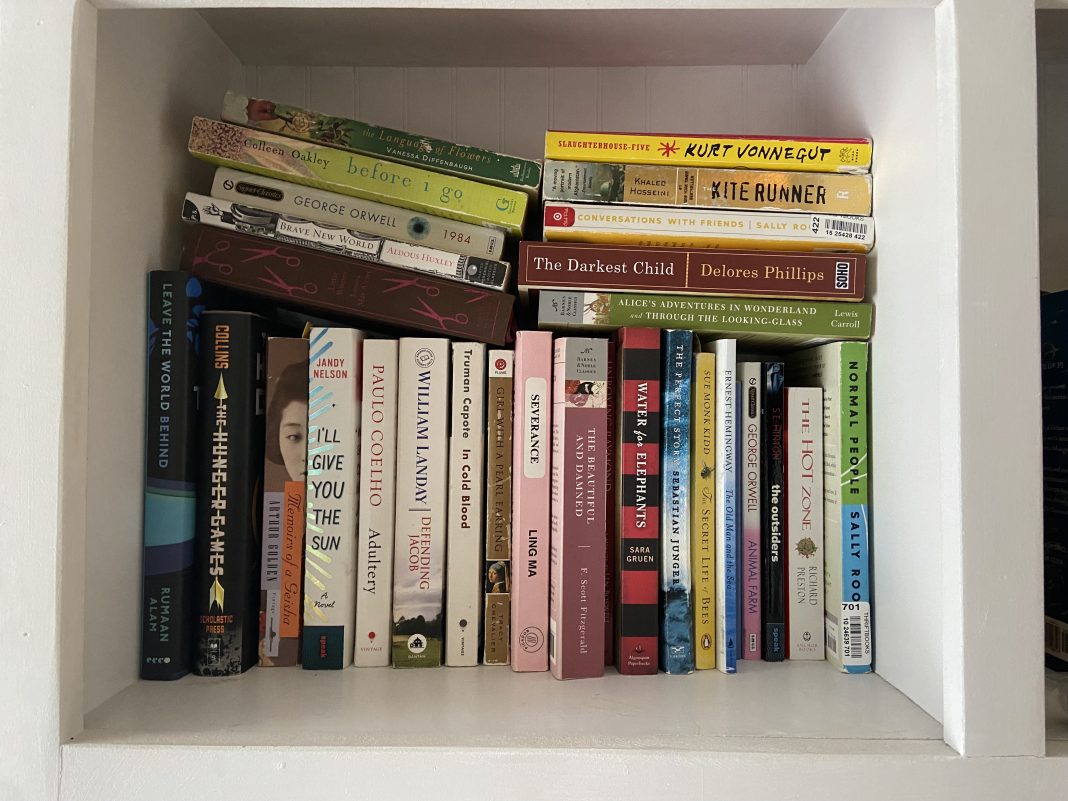Growing up in the 21st century, those who read for enjoyment feel as though they are in the minority. With accessible technology and social media, video games and television as easy entertainment, many children and young adults today grew up viewing readings as a chore only done in the confines of a classroom.
This can be accredited to “displacement theory,” where one activity begins taking up time we once occupied with another. The hours previously spent tearing through the pages of a gripping novel were replaced with time spent in front of the television or on phones. Research also suggests that consistent time spent on social media shortens our attention span and can even be addictive, making social media users far less inclined to devote time to reading novel-length stories.
Ironically, trends on social media applications have in recent years made reading trendy again in a way that has millions of readers fixated on certain titles as a topic of conversation.
“BookTok” is a subsection of the short video platform TikTok where creators review, recommend and discuss books. It has boomed to the point where the hashtag has 91.5 billion views and notable bookstores like Barnes and Nobles have sections dedicated to books made popular by the trend.
To some, TikTok facilitates conversation, providing people with recommendations and creating a community that gets people excited to read. To others, it feels like another almost dystopian example of social media dictating our lives.
According to Publishers Weekly, book sales overall rose by 8.9% in 2021. In young adult fiction, sales rose by 30.7% and 25.5% in adult fiction which they attribute, in part, to the discourse on TikTok.
This discourse has reignited burnt out avid readers and has introduced people who never were interested in reading to a newfound love for literature. Many young adults today credit their poor relationship with reading in part to experiences in education where they began to see reading as forced work rather than something enjoyable. Now, they’re finding their way back to reading literature they genuinely enjoy.
“I feel like I didn’t have a great past experience with reading since it was so forced on me throughout middle and high school and the books we were required to read weren’t ones I was interested in so I wasn’t inclined to read on my own,” junior Ryann Miller said. “Now that I’m not really required to read as much for homework and assignments I have the freedom to pick and choose books that actually interest me and it makes reading much more enjoyable.”
It encourages readers and gives them somewhere to start with a multitude of recommendations made by millions. The avid discussion, live reactions, opinions and memes posted by readers give them a community and something to be excited about when they enjoy a book.
But reading shouldn’t just be treated as a passing trend or fad. While trendy books might be beneficial for drawing people back into reading as a hobby, readers shouldn’t base their book choices in entirety off of what is trending on TikTok. Reading provides us with an opportunity to gain knowledge, form opinions and expose ourselves to new ideas. One can’t fully reap the benefits of the activity if they only stick to one author or genre or if they draw conclusions about a book based on its popularity without even cracking its cover open.
The current overwhelming attention to romance novels by Colleen Hoover embodies the influence that TikTok has to make an author’s career.
Hoover’s novels, published a few years prior, blew up on the platform in 2021, and she now holds six of the top 10 spots on The New York Times’s paperback fiction best-seller list and sold over 8.6 million print books in 2022 alone. In an interview for her New York Times profile, Hoover said that she can’t comprehend her books’ popularity, especially as she reads other people’s books that she thinks are better than hers but aren’t selling in the same way.
Sometimes it seems like there is no rhyme or reason to which books begin to trend on social media and which don’t attract a following, and the echo chamber of popular recommendations brings inordinate amounts of attention to a few books when there are many others that deserve to be read as well.
Personally, I have peers who rush to get the new Colleen Hoover book when it comes out and devour the novel in a few days but don’t read anything by any other author when there are probably hundreds of books by different authors that they would enjoy.
Reading becoming a trendy activity is positive, especially in getting people back into reading and forming a large-scale internet community centered around it, but readers should want to find the separation between internet trends and their own taste and not only follow whatever’s at the top of the charts online. Books that trend all trend for some reason, but that’s not all that’s out there and if everyone reads the same few titles and genres, we’ll lose out on a lot of valuable work.
We may not all agree on which titles deserve their hype, but there is immense value in discussing books and hearing others’ viewpoints. The prevalence of leisure reading urged by social media provides an opportunity for people to reap these benefits and find enjoyment in doing so.
Pari Walter is the opinion editor and a junior studying journalism and psychology.






